Adam J. Hall
Practical Defences Against Model Inversion Attacks for Split Neural Networks
Apr 21, 2021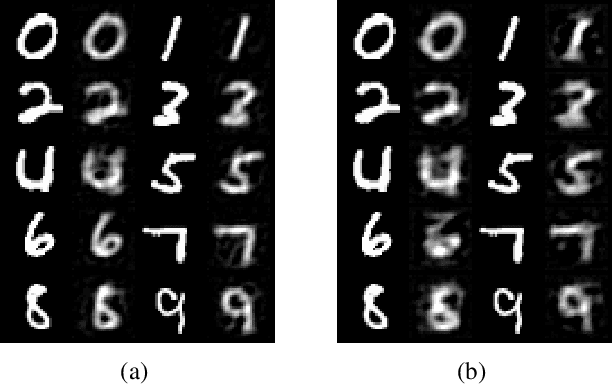
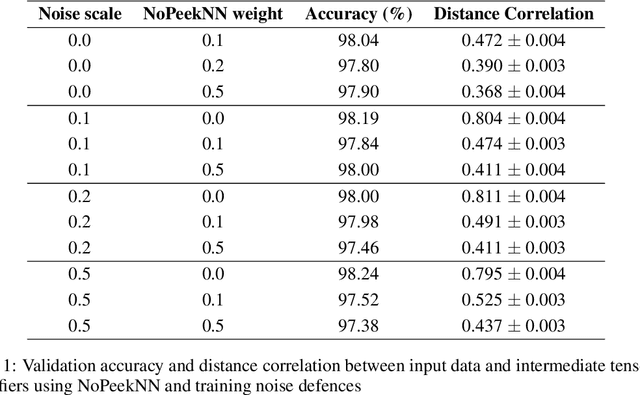
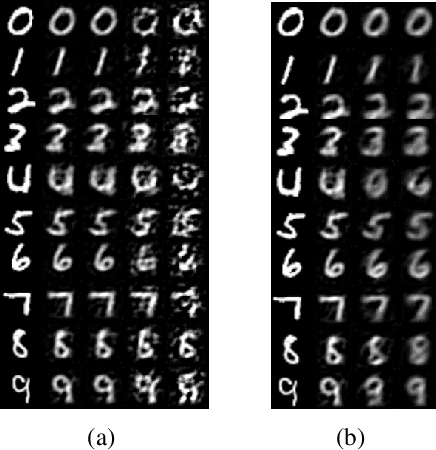
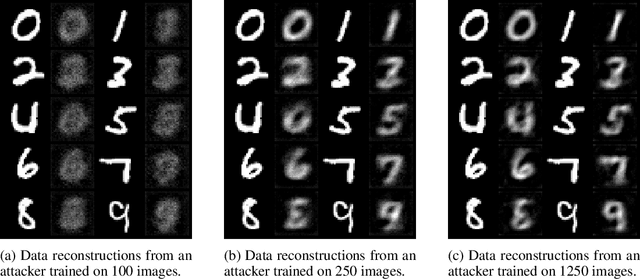
Abstract:We describe a threat model under which a split network-based federated learning system is susceptible to a model inversion attack by a malicious computational server. We demonstrate that the attack can be successfully performed with limited knowledge of the data distribution by the attacker. We propose a simple additive noise method to defend against model inversion, finding that the method can significantly reduce attack efficacy at an acceptable accuracy trade-off on MNIST. Furthermore, we show that NoPeekNN, an existing defensive method, protects different information from exposure, suggesting that a combined defence is necessary to fully protect private user data.
Privacy and Trust Redefined in Federated Machine Learning
Mar 30, 2021

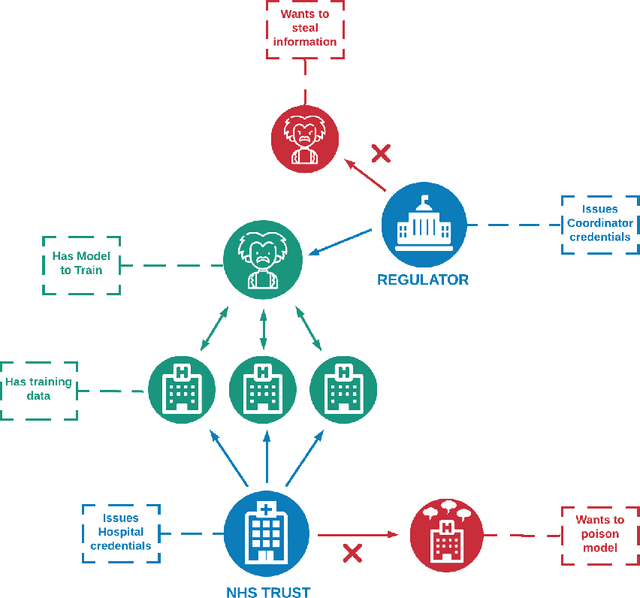

Abstract:A common privacy issue in traditional machine learning is that data needs to be disclosed for the training procedures. In situations with highly sensitive data such as healthcare records, accessing this information is challenging and often prohibited. Luckily, privacy-preserving technologies have been developed to overcome this hurdle by distributing the computation of the training and ensuring the data privacy to their owners. The distribution of the computation to multiple participating entities introduces new privacy complications and risks. In this paper, we present a privacy-preserving decentralised workflow that facilitates trusted federated learning among participants. Our proof-of-concept defines a trust framework instantiated using decentralised identity technologies being developed under Hyperledger projects Aries/Indy/Ursa. Only entities in possession of Verifiable Credentials issued from the appropriate authorities are able to establish secure, authenticated communication channels authorised to participate in a federated learning workflow related to mental health data.
* MDPI Mach. Learn. Knowl. Extr. 2021, 3(2), 333-356; https://doi.org/10.3390/make3020017
 Add to Chrome
Add to Chrome Add to Firefox
Add to Firefox Add to Edge
Add to Edge